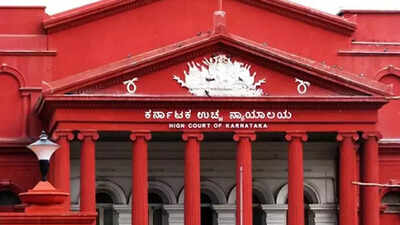Top Searches
- News
- City News
- bengaluru News
- Xiaomi free to take overdraft, make payments: Karnataka HC

Vacation judge Justice S Sunil Dutt Yadav said that now the matter is between the banks and the petitioner company, Xiaomi.
BENGALURU: The Karnataka high court on Thursday clarified that Xiaomi Technology India is at liberty to take an overdraft from the banks and make payments, excluding the payment of technology royalty.
Vacation judge Justice S Sunil Dutt Yadav said that now the matter is between the banks and the petitioner company, Xiaomi.
The judge also extended till May 23, the interim order passed by the court on May 5 .
On the last occasion, the court had granted conditional stay with regards to operation of the April 29 order passed by the Enforcement Directorate (ED), whereby Rs 5,551.3 crore belonging to Xiaomi came to be seized, by invoking the provisions of the Foreign Exchange Management Act, 1999.
The court had permitted Xiaomi to operate seized bank accounts only for the purpose of meeting expenses for carrying out the day to day activities and had added that the interim order will not confer any right on the company to make payment in the form of royalty or any other form to companies outside India.
Earlier, when the matter was taken up, senior advocate S Ganeshan, appearing for the Xiaomi, sought clarification of the interim order passed on May 5. He said that banks are not allowing the company to make remittances in foreign exchange for other purposes like imports, citing the interim order passed by the high court.
He said Xiaomi is required to make payments to foreign entities for manufacturing and selling of smartphones, a sector where the company holds 25% market share.
He said Xiaomi is being targeted because it is a Chinese company and other mobile manufacturers are being allowed to make technology royalty payments.
On the other hand, Additional Solicitor General MB Nargund submitted that if Xiaomi is agreeable to keep the seized amount in the bank and utilise the remaining available amount, the authorities have nothing to complain. He said as per information received by him, around Rs 1,500 crore was transferred between April 24-29, just before the ED passed the order to attach the company’s bank accounts.
Xiaomi has claimed that technology royalty payment, made to three companies outside India, would in no way violate the FEMA Act as the IT department itself had facilitated it by allowing it as a deduction as well as a value added activity.
Vacation judge Justice S Sunil Dutt Yadav said that now the matter is between the banks and the petitioner company, Xiaomi.
The judge also extended till May 23, the interim order passed by the court on May 5 .
On the last occasion, the court had granted conditional stay with regards to operation of the April 29 order passed by the Enforcement Directorate (ED), whereby Rs 5,551.3 crore belonging to Xiaomi came to be seized, by invoking the provisions of the Foreign Exchange Management Act, 1999.
The court had permitted Xiaomi to operate seized bank accounts only for the purpose of meeting expenses for carrying out the day to day activities and had added that the interim order will not confer any right on the company to make payment in the form of royalty or any other form to companies outside India.
Earlier, when the matter was taken up, senior advocate S Ganeshan, appearing for the Xiaomi, sought clarification of the interim order passed on May 5. He said that banks are not allowing the company to make remittances in foreign exchange for other purposes like imports, citing the interim order passed by the high court.
He said Xiaomi is required to make payments to foreign entities for manufacturing and selling of smartphones, a sector where the company holds 25% market share.
He said Xiaomi is being targeted because it is a Chinese company and other mobile manufacturers are being allowed to make technology royalty payments.
On the other hand, Additional Solicitor General MB Nargund submitted that if Xiaomi is agreeable to keep the seized amount in the bank and utilise the remaining available amount, the authorities have nothing to complain. He said as per information received by him, around Rs 1,500 crore was transferred between April 24-29, just before the ED passed the order to attach the company’s bank accounts.
Xiaomi has claimed that technology royalty payment, made to three companies outside India, would in no way violate the FEMA Act as the IT department itself had facilitated it by allowing it as a deduction as well as a value added activity.
FOLLOW US ON SOCIAL MEDIA
FacebookTwitterInstagram
Looking for Something?

Start a Conversation
end of article

